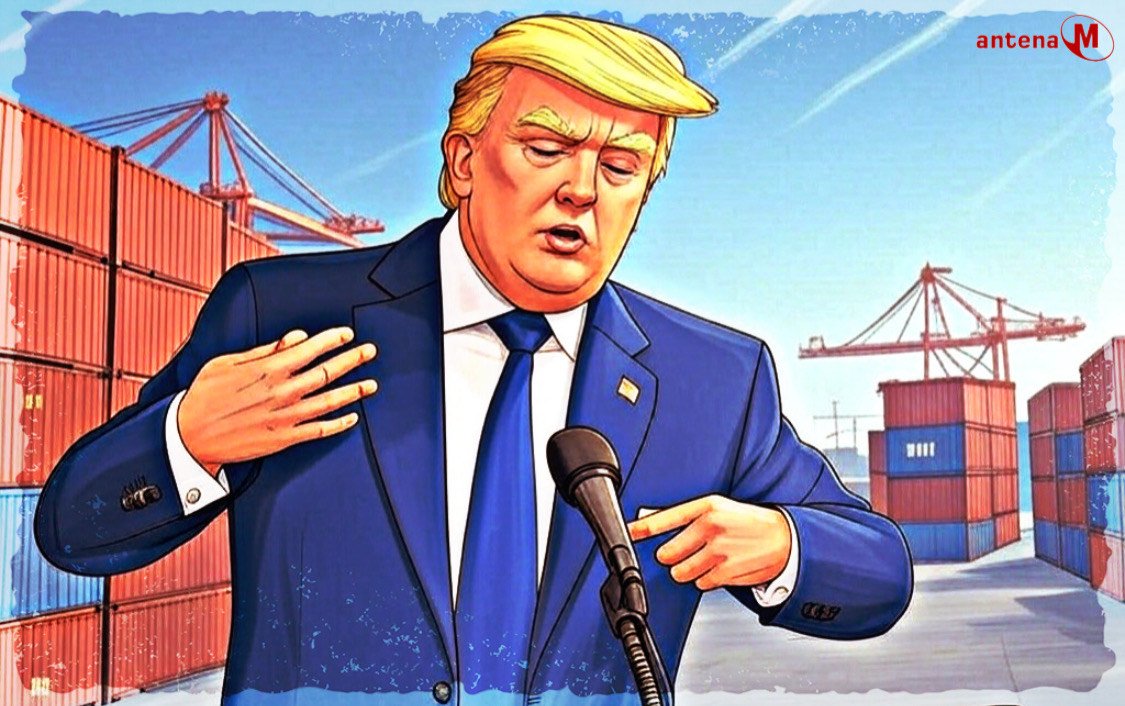Trump’s tariff revolution isn’t a bold move toward economic sovereignty – it’s a reckless revival of an outdated policy that history has already condemned.
Written by Ana Nives Radović
When U.S. President Donald Trump announced his plan to introduce tariffs and declared April 2nd as "Liberation Day”, he framed it as a revolutionary break from globalist economic dogma – a reaffirmation of American sovereignty that would put the nation back on track economically. The proposed 25% tariff on imported vehicles and reciprocal measures targeting trade partners like the European Union and the United Kingdom were heralded as an unprecedented "return" of American economic dominance. However, upon closer examination, this vision is not the beginning of a new economic era; it is the revival of a flawed and outdated protectionist doctrine that history remembers as both ineffective and harmful.
Trump’s idea of "liberation" is based on a selective and oversimplified interpretation of trade history. The tariffs of the late 19th century, which he often praises as drivers of America’s industrial growth, are frequently presented in an idealized light, without acknowledging the serious economic disparities and social unrest they caused at the time. The approach taken by President William McKinley did not lead to the prosperity Trump envisions; instead, it sparked political conflicts, economic instability, and deep inequality – hard lessons that the current administration seems to have overlooked.
Trump’s tariff policy reflects a fundamental misunderstanding of its economic consequences. While tariffs are designed to protect domestic industries by making foreign goods more expensive, in practice, they function as a regressive tax that disproportionately affects lower- and middle-income families. As the prices of imported goods – from cars to clothing – rise, so does the overall cost of living. Wealthy Americans may be able to absorb these price increases, but for poorer households, higher costs for necessities like food, fuel, and clothing can be a serious financial burden.
Concerns about these tariffs are neither abstract nor tied to any particular political ideology. Economists across the spectrum agree that, regardless of their intended purpose, tariffs tend to hit the most vulnerable the hardest. In the long run, yesterday’s move could be seen as one of the largest tax increases in U.S. history – a tax that directly impacts the very people Trump claims to protect. Any illusion of protecting the American working class will quickly be overshadowed by the harsh reality of rising costs.
Trump’s insistence on "self-sufficiency" contradicts the realities of a globalized economy. The idea that the U.S. can – or should – "bring back" all manufacturing through tariffs is a fantasy that overlooks the complexities of international trade. Take steel tariffs, for example. They don’t just hurt foreign producers; they also drive up the cost of domestic products that rely on steel, such as cars and appliances. As a result, American consumers face higher prices, directly contradicting Trump’s promise to ease financial pressure on households.
Beyond the economic impact, Trump’s trade policies risk damaging alliances that have been central to the global economic order for decades. Tariffs are not isolated measures – they have broad consequences, including potential retaliation from trade partners. The effects of such policies could lead to a series of escalating trade wars, further straining relations between countries that were once key allies.
The biggest flaw in Trump’s tariff policy lies in his fundamental misunderstanding of the trade deficit. He often points to the U.S. trade deficit with countries like China and Canada as proof that America is being economically exploited. But this oversimplified perspective ignores the complexities of international trade. A trade deficit isn’t inherently harmful – lower prices on Canadian oil, for example, benefit American consumers by keeping fuel costs down and supporting jobs in key industries. What Trump sees as a damaging deficit is, in reality, a mutually beneficial economic relationship that works in America’s favor.
Trump’s obsession with trade balances blinds both him and his administration to the true nature of global economic exchange, jeopardizing the very partnerships that contribute to U.S. prosperity and stability.
These tariffs seem more like a relic of the protectionist era of President William McKinley, whose 1890s tariffs are often romanticized. However, this historical nostalgia overlooks the harsh realities of that period. Those tariffs didn’t create the prosperity Trump envisions; rather, they weakened the economy and fueled social unrest. The late 19th century was marked by labor conflicts, rising inequality, and growing political tensions – conditions that ultimately gave rise to progressive reforms and the New Deal.
McKinley’s tariffs didn’t secure lasting economic strength for the U.S.; they exacerbated economic fragility, leading to mass unemployment and social turmoil. This history serves as a warning: by embracing the same protectionist policies, Trump risks repeating the economic failures of the past – failures that contributed to the Great Depression.
The consequences of Trump’s tariffs extend beyond the domestic economy – they threaten to unravel the global order that has been carefully built since World War II. While the short-term effects, such as rising inflation and retaliatory tariffs, are already visible, the long-term consequences are far more alarming. Economic isolationism, especially when fueled by trade wars, can lead to political instability on a scale far greater than any one nation. Disrupting the interconnectedness that has driven global growth and cooperation makes countries more vulnerable, just as the breakdown of global trade in the 1930s set the stage for economic collapse.
Trump’s approach could usher in an era of economic stagnation, the erosion of international cooperation, and heightened uncertainty. The global economy could find itself in a downward spiral, deepening social inequalities, and fueling nationalist sentiment.
----------
This article is available on our portal in Montenegrin HERE.










Komentari (0)
POŠALJI KOMENTAR